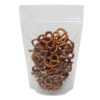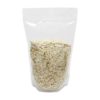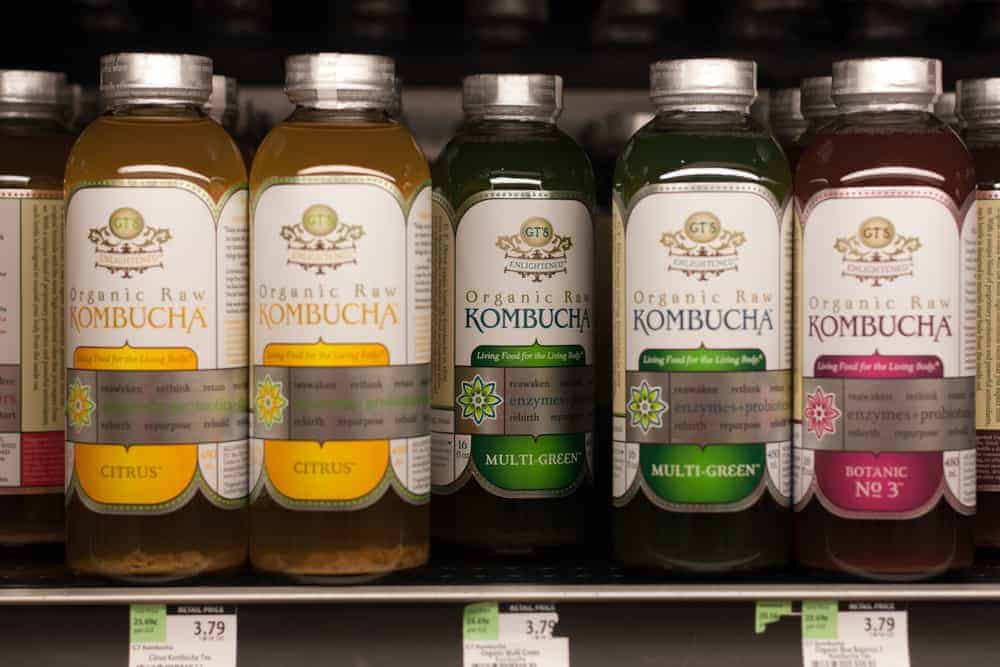Blog
New Probiotic Products Allow for More Shelf-Stable Products
Most Probiotics Must Be Refrigerated
New probiotic products: Despite having similar effects as supplements, probiotics cannot last outside refrigerated conditions for very long. Bacteria are known to have very specific environments within which they can survive, and it so happens that they are composed almost entirely of live bacteria that are beneficial to your body.
More specifically, the kinds of bacteria found in new probiotic products that can be easily acquired in stores are Bifidobacterium and Lactobacillus. These are groups of bacteria, referred to as lactic bacteria due to their high presence in fermented foods, that can only survive in temperatures below normal room temperature.
Before being packaged, they undergo processing, so that they are inactive under said temperatures, but once exposed to moisture and warmth, they are viable again.
Since they are usually very sensitive to heat and moisture, the heat will either kill them or activate them, only for them to die since they don’t receive the nutrition they need to stay alive.
For common bacteria such as these, the typically estimated loss in potency is about 13% every month. This implies that they can survive outside the fridge, they lose their effectiveness pretty fast.
Considering the average pharmacy knows this and doesn’t bother to refrigerate the product anyway, the probiotics are actively dying and will be largely inefficient by the time they get to your cabinet.
Soil Based Probiotics
The most recent development in probiotics is referred to as Soil Based Probiotics or SBO in short. As their name suggests, these are bacteria normally found in the soil that do for the plant what Bifidobacterium does for us – more or less. They produce vitamins, help fight off bad bacteria and break down the material the plant needs to produce energy.
The most common of these are species like Bacillus coagulans, which survive in high temperatures and generally do not require any form of refrigeration.
Additionally, the soil is a pretty harsh environment, and plants’ digestive processes aren’t too kind either. New probiotic products are thus generally tougher than other bacteria: they are resistant to acid, so they are more likely to survive the trip through the digestive tract and don’t require as much special handling as normal probiotics.
Most soil-based bacteria on which new probiotic products are made from like the previously mentioned Bacillus coagulans and probiotic yeast reproduce by sporulation and are thus referred to as spore-producing bacteria.
However, this reproductive process takes place in three steps, each of which plays a different role in their potential as potent probiotics: vegetative growth, sporulation, and germination.
Vegetative growth is usually triggered by the availability of nutrients – the availability of which greatly aids in their population numbers; sporulation is a complex series of a chain reaction that leads to the release of spores in the plant.
It’s also the most relevant to our cause since it leads to the protection of the bacteria under really harsh environments. This is the primary reason for its ability to survive in temperatures over normal room temperatures while normal probiotic products cannot.
What Makes Them Superior?
The sporulation process has been noted to be the most important part of the vegetative process due to the protection spores offer the bacteria. Spores can remain dormant for months to years and stand all kinds of damage – heat, radiation, toxic chemicals, and extreme pH changes, only to be activated once the right conditions for germination and outgrowth present themselves.
Unlike normal bacteria, which need to be kept away from humidity or they will reproduce too fast, or dry environments where they will die off, the spore enables SBOs to survive even extended hydrated states.
This toughness is an extremely important trait to be had in any drug, especially probiotics. One of the main problems that’s had with normal bacteria, no matter how beneficial, is that not many of them make it to the gut, to begin with.
Despite being able to survive and flourish there, conditions presented in places like the stomach and the mouth do not favor them. New probiotic products can easily make it through such conditions and begin their job when they reach the gut.
Due to their fragility, lactic-based organisms are usually coated with specialized drugs and preservatives that cannot be easily broken down, except by strong chemicals like those found in the stomach and intestines.
The problem with this, as you might imagine, is a significant amount of people don’t react too well to said chemicals, making them automatic no-gos to the benefits offered by soil-based organisms.
Since they don’t often survive the trip, it’s suggested that the effectiveness of normal probiotics will depend on your diet more than anything. The bacteria have a higher survival rate in environments surrounded by high-fiber content and insulin. Without which, they are to be very limited in their range. Again, soil-based organisms have no such constraints affixed to them.
In the words of Johannes Bader, a researcher from the Technische Universitat Berlin, “Bacterial spores are nature’s ultimate resilience machines. They offer a much higher survival rate as compared to bacteria with nothing more than a cell membrane to protect them from the harsh environment that is the human gut. They also have a much longer shelf life because they remain stable during the rather rough manufacturing process and even storage at home.”
Additionally, the germination phase also plays a critical role in the maintenance of the spore. Since spores are metabolically inactive, DNA damage repair normally occurs when spores are reactivated and are ready for the growth phase. This will typically happen during germination. SBOs can thus be thought of as self-healing since DNA repair essentially helps fix the damage that happens when the probiotic is inactive.
In the end, despite the minimal amount of benefit foods like yogurt (which contain probiotics) have been shown to benefit the human gut, they are not as beneficial as SBOs, current evidence seems to suggest.





